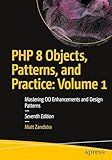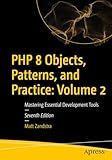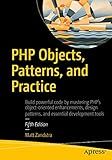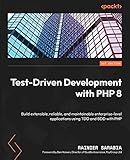Best PHP Test Tools to Buy in February 2026

PHP 8 Objects, Patterns, and Practice: Volume 1: Mastering OO Enhancements and Design Patterns



Expert PHP 5 Tools



PHP 8 Objects, Patterns, and Practice: Mastering OO Enhancements, Design Patterns, and Essential Development Tools



PHP 8 Objects, Patterns, and Practice: Volume 2: Mastering Essential Development Tools



PHP Objects, Patterns, and Practice



Test-Driven Development with PHP 8: Build extensible, reliable, and maintainable enterprise-level applications using TDD and BDD with PHP


To run PHPUnit tests in a Laravel controller, first create a test class that extends the Laravel TestCase class. Within this test class, write test methods that will test the different functionalities of the controller.
In each test method, create an instance of the controller and call the specific method that you want to test. Then use assertions to verify that the method behaves as expected.
To run the PHPUnit tests, use the terminal or command prompt to navigate to the Laravel project directory and run the command "php artisan test". This will execute all the tests in the project, including the ones in the controller test class.
Make sure that your controller is properly structured and follows the MVC architecture to ensure that it can be easily tested. Also, use mocking and stubbing techniques to isolate the controller from its dependencies and make the tests more focused on the controller's behavior.
How to run specific PHPUnit tests in a Laravel controller?
To run specific PHPUnit tests in a Laravel controller, you can use the following steps:
- First, make sure you have PHPUnit installed in your Laravel application. You can do this by running the following command in your terminal:
composer require --dev phpunit/phpunit
- Once PHPUnit is installed, you can create a new test class or add your specific tests to an existing test class. For example, you can create a new test file in the tests/Feature directory:
php artisan make:test MySpecificTest
- Write your specific tests inside the test class. For example:
